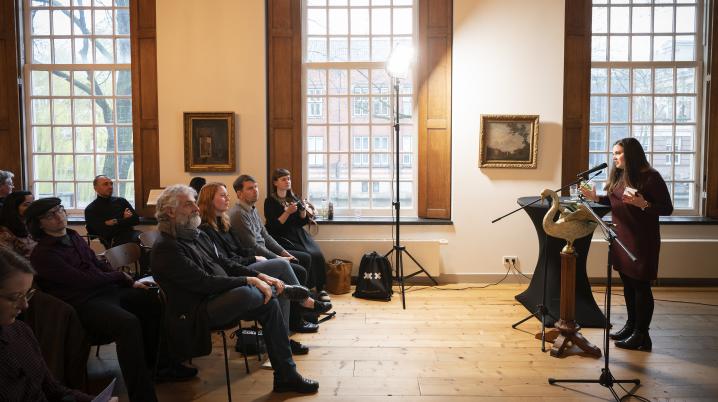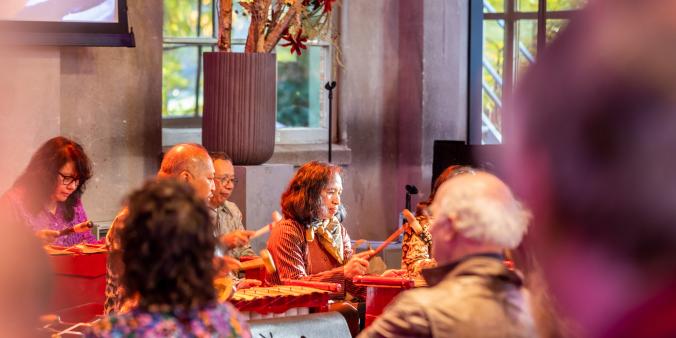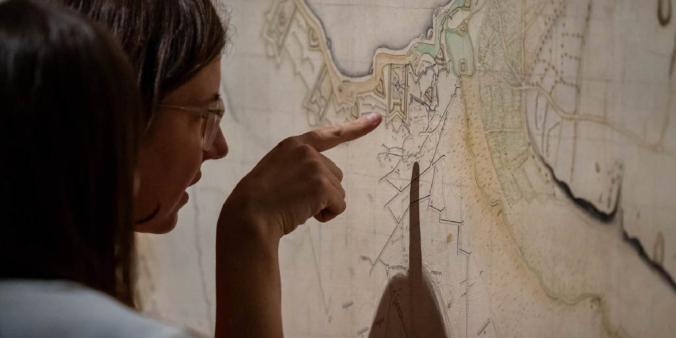
Everyone is part of one or more cultural heritage communities, with or without being aware of it. This understanding has led heritage organisations in Europe to experiment with community engagement. To feel connected to heritage, one doesn't have to own it, which is why cultural organisations have come up with new approaches. For example, the Netherlands has recently signed the Faro Convention on the Value of Cultural Heritage for Society. At DutchCulture, we also focus on cultural heritage and its relation to communities.
The Faro Convention
The Faro Convention, adopted in 2005 by the Council of Europe in the Portuguese city of Faro, entered into force in 2011. Rather than viewing objects and buildings as cultural heritage in and of themselves, the convention emphasizes their significance to people, the values they represent, and how they can be understood and transmitted to others. It's based on the idea that rights associated with cultural heritage are inherent within the right to participate in cultural life, as defined in the Universal Declaration of Human Rights. This perspective promotes a participatory perspective that is centred around people and heritage communities, which recognizes the importance of human rights and democracy in managing and preserving cultural heritage.
By now, 24 member states of the European Union have ratified the Convention, while 5 member states have signed it. Belgium, for example, has incorporated its principles into the national heritage policy, focusing on an integrated and inclusive approach that involves cultural heritage communities. Connecting with heritage does not require ownership. Finland, for example, has focused on large-scale digitisation of cultural heritage to meet the convention's recognition of the right for everyone to access their cultural heritage.
Before signing the agreement, the Cultural Heritage Agency of the Netherlands researched the implementation of the Convention in the Netherlands, together with the heritage field. The results and successful projects can be found on their platform (in Dutch).
Symposium: Making (intangible) heritage visible
At DutchCulture, we are also focusing on how to make (intangible) heritage more visible by collaborating with communities. (Intangible) cultural heritage is not detached from society; it is an integral part of it. However, many cultural organisations struggle to determine the best approach for their national policies and other needs. Many heritage organisations are working on bringing (intangible) cultural heritage closer to the public and promoting its preservation, by conducting research, making inventories, displaying it in museums, or digitising it.
This is why we organised a symposium exploring the many ways in which other cultural organisations in Europe work with communities. If you want to learn about successful examples of the work done by European heritage professionals in other parts of Europe or if are interested in the experiences of other organizations when working with communities, you can watch the videos:
Report: A future-oriented evaluation of intangible cultural heritage by the Dutch Ministry of Education, Culture, and Science
The State Secretary for Culture and Media announced in the Dutch House of Representatives that, after 10 years of policy development, it is a good moment to evaluate the functioning of the intangible cultural heritage field and explore possibilities for shaping future policies. The Ministry of Education, Culture, and Science (OCW) commissioned the project agency Cultural Motion to conduct this forward-looking evaluation of intangible cultural heritage policy, as a follow-up to the periodic report by UNESCO that coordinated in 2021 together with the implementing partners in the Netherlands and Caribbean Netherlands.
From DutchCulture's international perspective and with a focus on our International Heritage Cooperation and Europe + Heritage programmes, our (heritage) advisors provided comprehensive feedback on the intangible heritage policy of the Ministry, and on the practices in the intangible heritage field. This feedback has been incorporated into the report.





